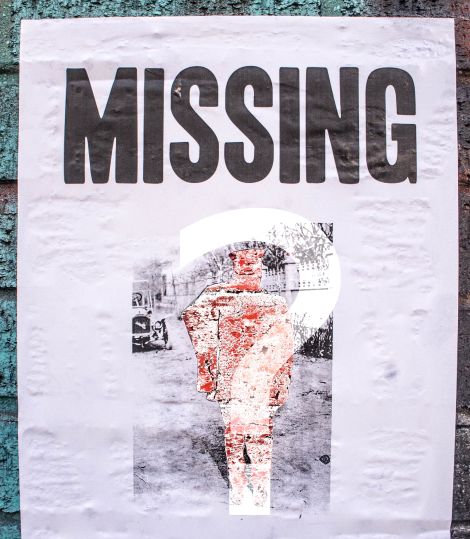Nichtidentität und Unbegrifflichkeit
682 Seiten
Lieferzeit: 5 Werktage(inkl . Versand)
Ausgehend von einem Dialog zwischen Adorno und Blumenberg entwickelt die Studie ein eigenständiges Verfahren der philosophischen Sprachkritik. Durch die Konfrontation erarbeitet sie ein Sprachverständnis, das in der Auseinandersetzung mit der wissenschaftlichen Begriffs- und der gesellschaftlichen Sprachpraxis gründet. Einerseits wird die von der Sprachphilosophie bis heute oft abgewertete Rhetorik rehabilitiert. Das 'Unbegriffliche' erweist sich als unabdingbar für das Denken und Sprechen - besonders für den Ausdruck des 'Nichtidentischen'. Andererseits wird die unbewusste Orientierungsfunktion von Metaphern problematisiert. Im Rückgriff auf Adornos Gesellschaftstheorie rekonfiguriert der Autor Blumenbergs Metaphorologie als ein ideologiekritisches Verfahren, das an der Sprache abliest, was das Denken und Handeln anleitet. Die Arbeit wurde mit dem "Tiburtius-Preis der Berliner Hochschulen - Anerkennungspreis für hervorragende Dissertationen" ausgezeichnet. 'A remarkably thorough, thoughtful and original piece of work, fully justifying the decision to compare two figures who hitherto have rarely been discussed together.' Martin Jay Based on a dialogue between Adorno and Blumenberg, this book develops a highly original method of philosophical language criticism. By way of this contrasting juxtaposition, it elaborates an understanding of language that is grounded in the dispute between scientific conceptual and social linguistic practice. On the one hand, rhetoric, which has often been (and even today sometimes is) devalued by the philosophy of language, is being rehabilitated. The "non-conceptual" proves to be indispensable for thinking and speaking - especially for the expression of the "non-identical". On the other hand, the unconscious workings of metaphors in orientation is expounded. Drawing on Adorno's social theory, the study reconfigures Blumenberg's metaphorology as an ideology-critical procedure that takes its cue from language in order to ascertain what guides thought and action. The study was awarded the Tiburtius Prize of the Berlin Universities - Recognition Award for Outstanding PhD Theses.
| Autor | Tränkle, Sebastian |
|---|---|
| Verlag | Klostermann, Vittorio Verlag |
| ISBN | 9783465045809 |
| ISBN/EAN | 9783465045809 |
| Lieferzeit | 5 Werktage(inkl . Versand) |
| Erscheinungsdatum | 22.07.2021 |
| Lieferbarkeitsdatum | 13.06.2022 |
| Einband | Kartoniert |
| Format | 4.1 x 20 x 12.4 |
| Seitenzahl | 682 S. |
| Gewicht | 687 |
Weitere Informationen
| Verlag | Klostermann, Vittorio Verlag |
|---|---|
| ISBN | 9783465045809 |
| Erscheinungsdatum | 22.07.2021 |
| Einband | Kartoniert |
| Format | 4.1 x 20 x 12.4 |
| Gewicht | 687 |
Ausgehend von einem Dialog zwischen Adorno und Blumenberg entwickelt die Studie ein eigenständiges Verfahren der philosophischen Sprachkritik. Durch die Konfrontation erarbeitet sie ein Sprachverständnis, das in der Auseinandersetzung mit der wissenschaftlichen Begriffs- und der gesellschaftlichen Sprachpraxis gründet. Einerseits wird die von der Sprachphilosophie bis heute oft abgewertete Rhetorik rehabilitiert. Das 'Unbegriffliche' erweist sich als unabdingbar für das Denken und Sprechen - besonders für den Ausdruck des 'Nichtidentischen'. Andererseits wird die unbewusste Orientierungsfunktion von Metaphern problematisiert. Im Rückgriff auf Adornos Gesellschaftstheorie rekonfiguriert der Autor Blumenbergs Metaphorologie als ein ideologiekritisches Verfahren, das an der Sprache abliest, was das Denken und Handeln anleitet. Die Arbeit wurde mit dem "Tiburtius-Preis der Berliner Hochschulen - Anerkennungspreis für hervorragende Dissertationen" ausgezeichnet. 'A remarkably thorough, thoughtful and original piece of work, fully justifying the decision to compare two figures who hitherto have rarely been discussed together.' Martin Jay Based on a dialogue between Adorno and Blumenberg, this book develops a highly original method of philosophical language criticism. By way of this contrasting juxtaposition, it elaborates an understanding of language that is grounded in the dispute between scientific conceptual and social linguistic practice. On the one hand, rhetoric, which has often been (and even today sometimes is) devalued by the philosophy of language, is being rehabilitated. The "non-conceptual" proves to be indispensable for thinking and speaking - especially for the expression of the "non-identical". On the other hand, the unconscious workings of metaphors in orientation is expounded. Drawing on Adorno's social theory, the study reconfigures Blumenberg's metaphorology as an ideology-critical procedure that takes its cue from language in order to ascertain what guides thought and action. The study was awarded the Tiburtius Prize of the Berlin Universities - Recognition Award for Outstanding PhD Theses.
Kategorie

